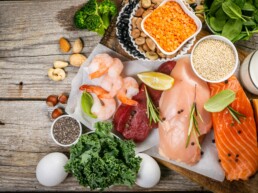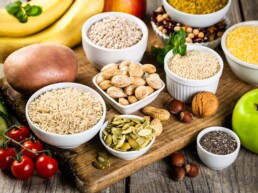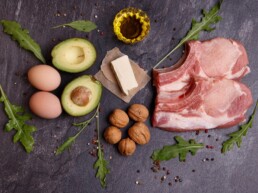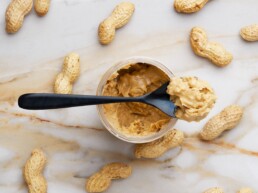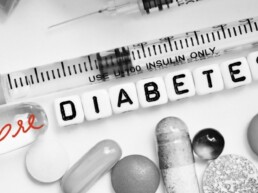Probiotics are live microorganisms that are beneficial for our health when consumed in adequate amounts. They are often referred to as “good” or “friendly” bacteria because they help maintain a healthy balance of microorganisms in our gut. You can find these bacteria in probiotic-rich foods such as yogurt, kefir, sauerkraut, and kimchi, as well as in supplements.
The most common types of probiotics are Lactobacillus and Bifidobacterium, but there are many other strains that have been shown to have health benefits.
So, what exactly do probiotics do for us? Well, our gut is home to trillions of microorganisms, both good and bad. When the balance between these microorganisms is disrupted, it can lead to digestive issues such as bloating, constipation, and diarrhoea. Probiotics help restore this balance by crowding out harmful bacteria and promoting the growth of beneficial ones.
In addition to improving digestive health, probiotic-rich foods have been shown to have a number of other health benefits. For example, they can help boost the immune system, reduce inflammation, and even improve mental health.
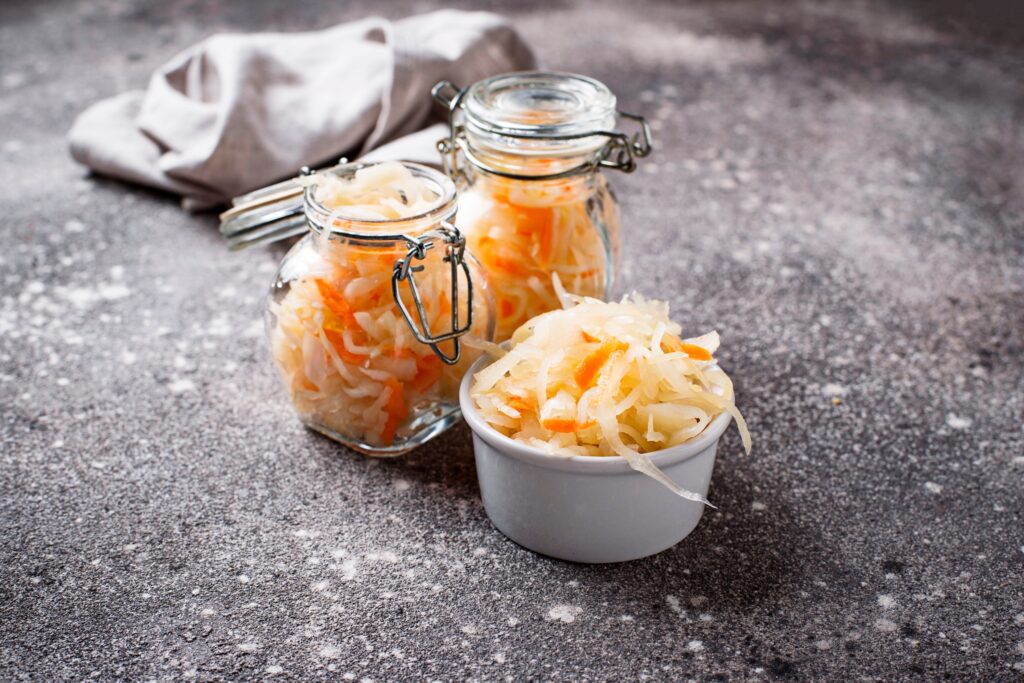 It’s important to note that not all probiotics are created equal. Different strains of bacteria have different effects on the body, and the amount and frequency of consumption can also impact their effectiveness.
It’s important to note that not all probiotics are created equal. Different strains of bacteria have different effects on the body, and the amount and frequency of consumption can also impact their effectiveness.
Overall, probiotics are a great way to support your overall health and well-being. By maintaining a healthy balance of microorganisms in your gut, you can improve digestion, boost immunity, and even enhance your mental health. So go ahead and add some fermented foods to your diet or consider taking a probiotic supplement – your gut (and the rest of your body) will thank you! If you’re interested in incorporating probiotics into your diet, read on to learn more about different types of probiotics and easy ways to include them in your daily nutrition plan.
10 great reasons to include probiotic-rich foods in your diet:
Promotes healthy digestion: Probiotics can help reduce symptoms of digestive issues such as bloating, gas, and diarrhoea by restoring the balance of good bacteria in the gut.
Boosts immune system: Probiotics have been shown to enhance the immune system by supporting the growth of immune cells and reducing inflammation.
Reduces inflammation: Chronic inflammation is linked to a number of health conditions, including heart disease, diabetes, and cancer. Probiotics can help reduce inflammation in the body and may help lower the risk of these diseases.
Improves mental health: The gut-brain connection is a fascinating area of research, and studies have shown that probiotics can have a positive impact on mental health by reducing symptoms of anxiety and depression.
Supports healthy weight management: Probiotics may help regulate metabolism and promote weight loss by reducing inflammation and promoting healthy gut bacteria.
Improves skin health: Probiotics have been shown to improve the health and appearance of skin by reducing inflammation and promoting collagen production.
May reduce the risk of certain diseases: Studies have suggested that probiotics may help lower the risk of or help in the management of certain diseases such as colon cancer, heart disease, and type 2 diabetes.
Supports healthy pregnancy: Probiotics can help support a healthy pregnancy by reducing the risk of gestational diabetes, preeclampsia, and preterm birth.
May improve allergies and asthma: Research has suggested that probiotics may help reduce the severity of allergies and asthma by modulating the immune response.
Easy to incorporate into your diet: Probiotic-rich foods such as yogurt, kefir, sauerkraut, and kimchi are easy to incorporate into your diet and can provide a wide range of health benefits.
So there you have it – ten great reasons to include probiotic-rich foods in your diet. Whether you’re looking to improve your digestion, boost your immune system, or support your overall health and well-being, probiotics are a great addition to any healthy eating plan.
Here are five easy ideas to include probiotic-rich foods regularly in your diet:
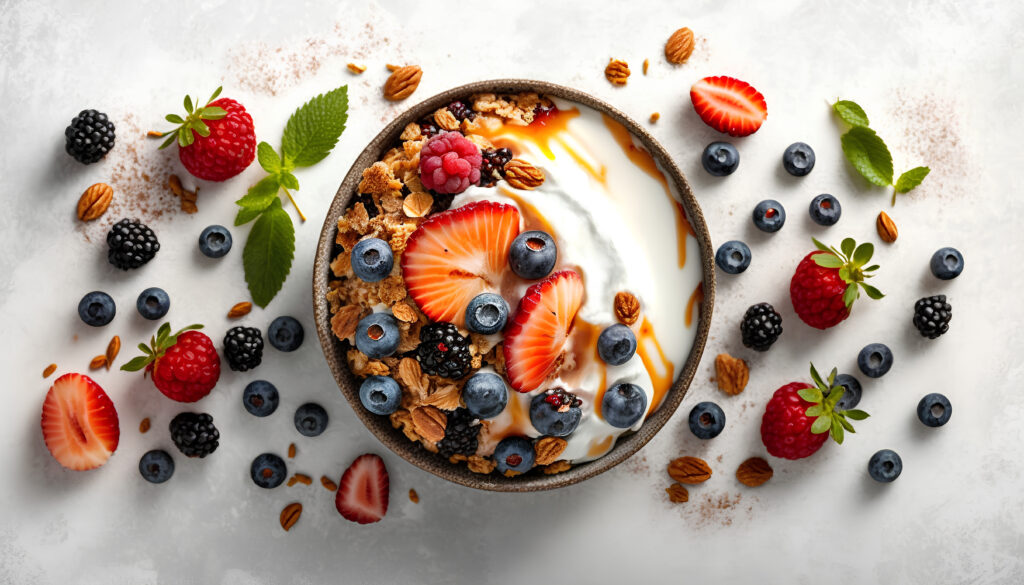
- Enjoy a serving of yogurt or kefir with breakfast: Yogurt and kefir are both great sources of probiotics and can be enjoyed as part of a healthy breakfast. Try adding some fresh fruit, nuts, or granola to your yogurt. Or blending kefir with some berries for a delicious and nutritious smoothie.
- Snack on fermented veggies: Fermented vegetables such as sauerkraut and kimchi are rich in probiotics and make a great snack or side dish. You can also add them to sandwiches, wraps, or salads for an extra boost of flavour and nutrition.
- Incorporate miso into your meals: Miso is a fermented soybean paste that is commonly used in Japanese cuisine. It’s rich in probiotics and can be used to flavour soups, stews, and marinades.
- Make your own fermented foods: If you’re feeling adventurous, you can try making your own fermented foods at home. Fermenting vegetables, such as cabbage for sauerkraut, is a simple process that can be done with just a few ingredients.
- Take a probiotic supplement: If you’re having trouble getting enough probiotics from your diet, you can consider taking a probiotic supplement. These supplements come in a variety of forms, including capsules, powders, and chewable tablets.
Incorporating probiotic-rich foods into your diet doesn’t have to be complicated or time-consuming. By making small changes to your eating habits and trying out new recipes and ingredients, you can enjoy the many health benefits of probiotics and support your overall health and well-being.
India has a rich culinary tradition that includes many probiotic-rich foods. Here are a few examples:
- Dahi (Yogurt): Dahi, or yogurt, is a staple in Indian cuisine and is commonly eaten as a side dish or used as a base for dips and marinades. It’s rich in probiotics and can be enjoyed plain or flavored with spices and herbs.
- Idli and Dosa: Idli and dosa are traditional South Indian breakfast foods made from fermented rice and lentil batter. The fermentation process makes them rich in probiotics and easy to digest.
- Kanji: Kanji is a fermented drink made from black carrots, beets, or radishes that is commonly consumed in northern India. It’s rich in probiotics and is believed to have a number of health benefits, including aiding digestion and boosting the immune system.
- Pickles: Pickles are a popular accompaniment to many Indian meals and are made by fermenting vegetables such as mango, lemon, and chili peppers in saltwater brine. The fermentation process makes them rich in probiotics and gives them a tangy, sour flavour.
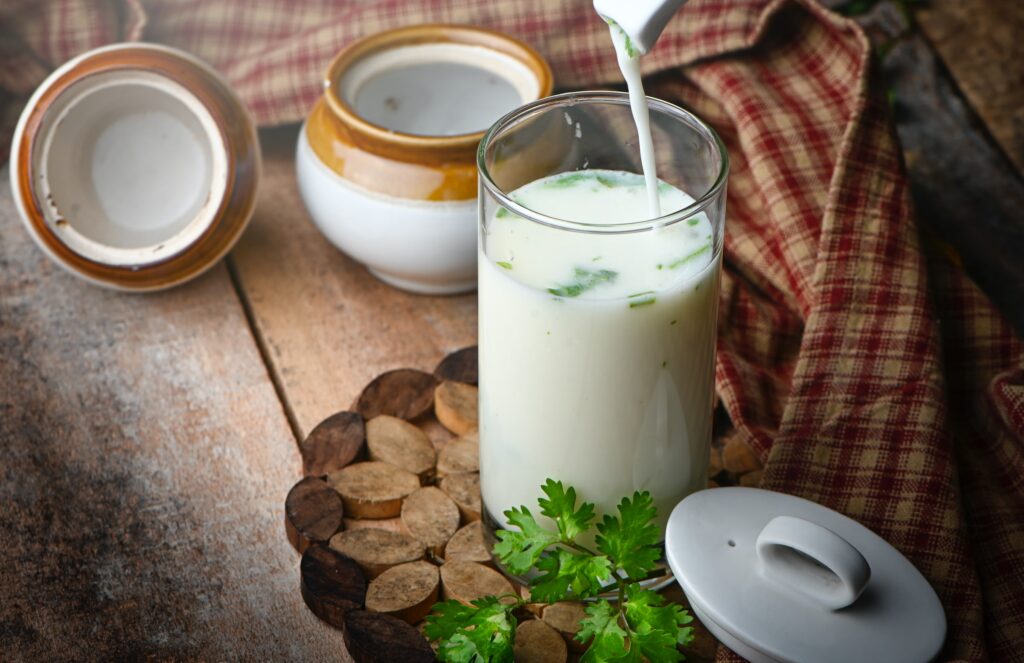
- Chaas: Also known as buttermilk, Chaas is a popular drink in India that is made by mixing yogurt with water and spices such as cumin and coriander. It’s rich in probiotics and is believed to aid digestion and cool the body in hot weather.
These are just a few examples of probiotic-rich foods that are commonly consumed in India. By incorporating these foods into your diet, you can enjoy the many health benefits of probiotics and savour the delicious flavours and aromas of Indian cuisine.
Now that we’ve looked at what probiotics are, their benefits, and some easy ways to incorporate them into your diet, I’m curious to know what probiotic-rich foods you enjoy eating. Do you have a favourite fermented food or drink that you like to include in your meals? Or maybe you’re excited to try out some of the ideas we discussed today. Whether it’s yogurt, sauerkraut, miso soup, or a tangy Indian pickle, there are many delicious ways to incorporate probiotics into your diet and support your overall health and well-being.
Remember, small changes to your eating habits can have a big impact on your health and well-being, so make sure to prioritize your gut health by including probiotic-rich foods in your diet.
SHARE

Madhavi Shilpi
Nutritionist
Prediabetes Coach
Related
Why Early Diagnosis of Prediabetes Is Key to Preventing Type 2 Diabetes
Introduction Imagine this: you’re feeling pretty healthy. Maybe you’re a…
32.8% of India Has Prediabetes — Are You Ignoring the Early Signs?
Introduction India is facing a serious health crisis: 32.8% of the…
Proteins: Building Blocks for a Stronger You
Are you curious about the role proteins play in our diet? Do you wonder…
Carbohydrates: Fuel For Your Body
Do you often wonder about the role carbohydrates play in our diet? Did…
Fats: A Balanced Perspective
Fats are good for us. Fats are bad for us. The argument rages on. Is there a…
Nut Butters: Are they healthy for you?
Nut butters are finding a fervent following amongst health food enthusiasts…
What is Prediabetes?
Have you been diagnosed with Prediabetes? Are you wondering what it actually…



